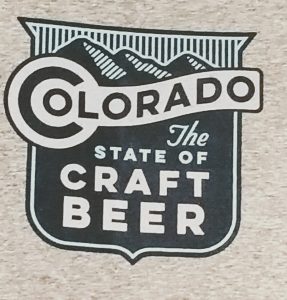Turning Your Brewing Passion into a Business
A Guide to Starting a Brewery
So you have the desire, the passion, the funding and a comprehensive business plan to start a brewery. Now what? There are many aspects of starting and running a business that must be considered, such as manufacturing, accounting, marketing, personnel management and facilities, to name a few. At times it can be a bit overwhelming, for a good reason.
“Everyone wants to start a brewery, right?” said Vic Falck of Calusa Brewing in Sarasota, Florida. “We were drawn to the industry for a multitude of reasons. First and foremost we love beer, are dedicated to making the best we can and wanted to share that with the world. It’s an exceptional and supportive community filled with passionate people doing what they love. That being said it’s not easy.”
While it will likely never be simple to open a brewery or other beer-related business, knowing what steps to take to get there will give you a better sense of direction, and keep you on track.
Step 1:
Decide Your Type of Beer Operations
You may have a passion for beer but would no talent for brewing and want to promote and sell your favorite products. Maybe you see a hole in the import business or distribution in your area and know you could make a difference. Or maybe for years, your dream has been to own and operate a brewery and do research on how to make the process even better. No matter what sort of business you hope to open, knowing where your aspirations fit within the beer business will help you in creating your business plan.
Some categories of beer businesses are:
• Brewpub/ Brewery/Alternating Proprietorship: A brewery of any size may be established to produce beer, to operate a brewpub or to conduct an alternating proprietorship with another brewery.
• Pilot Brewery: This is for a pilot brewing plant off the brewery premises for research, analytical experimental or developmental purposes relating to beer or brewery operations.
• Retail Dealer: This all-encompassing category includes businesses that sell or offer for sale alcohol beverage products.
• Wholesale Dealer: Anyone purchasing beer, wine or distilled spirits at wholesale to sell to other wholesalers or retailers.
• Importer of Beer: Anyone importing beer, wine or distilled spirits into the US must have an Importer’s Basic Permit.
Step 2:
Form Your Business Structure
First, find your investors. Decide how to finance and fund the business. Get loans. Perhaps build an investment group that shares your vision. Build a tight business plan. Decide if you’re a Sole Proprietor, Partnership, Limited Liability Corporation (LLC) or Corporation.
“The most important thing to decide is how to finance. Investors, loans, etc.,” said John Cimperman, Founder of 42 North Brewing Company in East Aurora, New York. “We chose to build an investment group that shared the vision. The key is to build a tight business plan, get everyone’s buy-in and run the business to plan.”
Step 3:
Federal Licensing Requirements
The website www.ttb.gov will become your best friend. The Alcohol and Tobacco Tax and Trade Bureau offers a comprehensive tutorial to “Getting Started in a TTB-Regulated Industry” that is invaluable.
Whether you have questions about taxation, regulations, or even vinegar, you’ll find answers on their website. The Q&A section will help with business, advertising, labeling and formulations questions as well as organic alcohol questions. If you’re making flavored malt beverages or even alcoholic beverages made with caffeine, you’ll find all the answers you need here as well.
The best part of this is you can handle the entire application process electronically.
“The TTB (The Alcohol and Tobacco Tax and Trade Bureau) has become very user-friendly. Their staff is ready and willing to help you through the process. Don’t be afraid, just be prepared to have the entire approval process take about six months,” said Cimperman.
Step 4:
State Alcohol Control Boards
California breweries recently received good news that they will no longer have to wait for the ABC label approval before selling their beers in the state thanks to Assembly Bill 893. Breweries now only need to register their beers with the ABC before selling them. This is just one of many state laws that breweries need to sort through when setting up their businesses. Knowing what the state laws dictate for breweries and other beer businesses is critical to getting approved for permits and staying open.
According to the TTB website, “In the United States, each state has the authority to regulate the production, sale, and distribution of alcohol within its borders. State and local jurisdictions may have requirements in addition to federal requirements. State laws and regulations vary widely from state to state and may be more restrictive than federal regulations.
You must meet all state and local requirements in any state where you plan to do business (unless Federal law preempts the state law). If you plan to do business in a state, you must contact its appropriate authorities for more information about the state and local requirements.”
“Florida has relatively strict regulations on breweries. It is a three-tiered alcohol regulation system that requires manufacturing, distribution, and sales of a beer be separate,” said Falck. “This system would have been a huge advantage in the beginning as it would have allowed us to get our name and product into more hands. However, as our distribution footprint has grown we have become thankful for our distribution partners, their resources and their ability to get the product where it needs to be.”
The US Congress passed the Tax Cuts and Jobs Act of 2017, which makes extensive changes to the Internal Revenue Code of 1986, including provisions related to alcohol that are administered by TTB. With this new legislation, the TTB is still assessing the impact on forms, regulations and systems. Look for new guidance and information in early 2018.
Step 5:
Local City/County and State Zoning
Not to be trite, but the expression “location, location, location” holds true in the brewery world.
Finding the right location that is visible, has parking, has the proper facilities to brew, and also falls within the correct zoning category can be a chore.
“Zoning was a challenge,” said Falck. “We considered a restaurant on site, but due to the zoning requirements, we were unable to do so. Local zoning ordinances forced us to choose between having a kitchen or being able to distribute outside the facility.”
Every state, county and town has different laws. Many breweries want to include food with their operation but must follow the rules, zone ordinances, and guidelines set up for them. Some places don’t allow breweries also to produce food. This could be a problem or, as many breweries have found, an opportunity to connect with other business in the community, such as food trucks, to promote top quality local food while people enjoy their beer.
“We have built strong partnerships with local food vendors who come onsite and provide a variety of changing daily food options,” said Falck. “This helps keep it fresh for our customers and give options we most likely would not have been able to offer in-house.”
Step 6:
Operations/ Reporting/ Accounting
Running any business requires a substantial amount of paperwork, and breweries and other beer businesses are no different. There are software systems available designed for breweries, POS systems for retail establishments, and general accounting software for keeping track of day to day costs. The trick is deciding and implementing a system that fits the needs of your business and can grow right along with you.
“Record keeping requirements are substantial and time-consuming,” said Falck. “We quickly realized we needed the assistance of brewery record keeping software soon after opening the doors. In hindsight, I wish we would have established this system before opening and brewing as it would have saved a lot of time and headache.”
If all else fails, hire a reliable business manager. Everyone has strengths, and a brewer is not necessarily a business person.
Step 7:
Label Approval
Every bottle or can needs an approved label. Don’t put this off until the last minute.
“Label approval can add a significant amount of time to the design process and should be considered well in advance of batch planning,” said Falck. “We initially learned that the hard way and had to delay a couple of releases due to kickbacks and required changes. However, the TTB and the COLA’s (Certificate of Label Approval) have made recent improvements to expedite the approval process. We find it takes days now instead of weeks or months. This is a very positive step and helps small breweries like Calusa to be able to release new and interesting packaged releases on a more regular basis.”
If you’ve made it this far, you should stop an applaud yourselves. Crack open a beer and toast to your success. Remember, people in the brewing world are extremely helpful and want to see everyone succeed. You can always reach out to your fellow compatriots and ask questions. Learn from their lessons and carve out your path.
Helpful Websites:
https://www.ttb.gov/www.ttbonline.gov
https://www.fda.gov/
https://www.pay.gov/public/home
https://www.ttb.gov/labeling/colas.shtml





